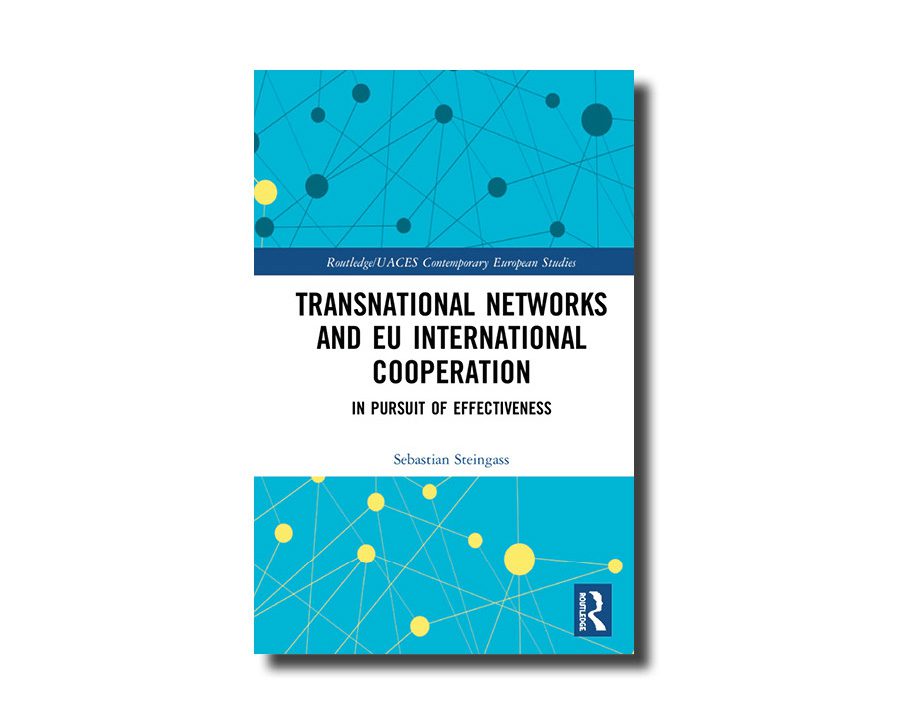The EU Commission is considered the chief coordinator of member states’ development policies. But, argues Sebastian Steingass, a transnational network of member state experts plays a hidden yet crucial role in initiatives for collective action
To tackle the adverse global impact of Covid-19, the EU was quick to announce the support of ‘Team Europe’, the concerted action and combined resources of EU institutions and member states. It suggests that concerted assistance in the face of global challenges remains lacking despite frequent calls for improvement.
The EU is collectively the largest provider of international aid. Yet this often-repeated accomplishment obscures the legal and institutional separation between EU institutions and member states. In tackling migration and the spread of Covid-19, member states have actively encouraged EU support. When it comes to coordinating the collective efforts of the EU and its member states, however, EU institutions tend to be in the driving seat.
Responsibility for EU development cooperation is shared between member states on the one hand, and EU institutions on the other. How to deal with this division has long been a concern for the European Commission. While the role of EU institutions is relatively clear-cut, we know much less about the role that member states play. And while member states tend to be sceptical of coordination of their own policies, they themselves have promoted coordination. It is particularly ironic how an increasingly Eurosceptic British government shaped EU policy until the 2016 Brexit referendum.
In the past, the separation between the aid and development policy of institutions and member states gave the impression of uncoordinated and therefore ineffective collective action. The Commission, over time, sought to address this chaotic situation with initiatives to coordinate and approximate policies and practices. The EU’s goal has been to enhance the effectiveness of collective EU action.
Aid donors are expected to coordinate their policies because it reduces transaction costs for partners and can lead to targeted, balanced and effective allocation of resources. Promoting such practices is one task of the Development Assistance Committee of the OECD. In the early and mid-2000s – the time of ‘Make Poverty History’ and ‘Live 8’ – EU states and Commission dominated the DAC, and the DAC dominated international development governance.
Despite calls for more common action, most member states are eager to avoid being coordinated
While the Commission has been active to promote coordination in the EU also by using the DAC, EU member states tend to act as brakes. Despite calls for more common action, most member states are eager to avoid being coordinated. The Commission made a case for more coordination in the 1970s and again in the 1990s but with few results. The status quo has proven hard to change.

Sebastian Steingass' new book, Transnational Networks and EU International Cooperation, published this year by Routledge
Yet in my forthcoming book Transnational Networks and EU International Cooperation I show that member states have themselves advanced initiatives for collective action. Despite the EU’s shortcomings, several member states see advantages in a common cooperation policy.
To illustrate this point, I draw on two cases: Germany and Britain. In both cases, member state officials drove coordination initiatives forward at the working level in Brussels. These efforts became evident after the financial crisis in 2008. British and German coordination initiatives involved the formal preparatory bodies of the Council, which were, however, not enough. Member states also seconded officials to the Commission, which bound the EU bureaucracy into a network of advocates who promoted the common initiatives as solutions for collective action failure.
Instead of the Commission being in the driving seat, a collective, transnational network of policy professionals coordinated the common policy standards
This advocacy involved depoliticisation of coordination by concentrating on approximating policy standards. It included the engagement of issue experts not only from the national ministries but also from non-state actors. Instead of the Commission being in the driving seat, a collective, transnational network of policy professionals coordinated the common policy standards.
Despite similarities between member states’ engagement, differences also exist. Germany built strongly on pro-EU credentials among its officials, while Britain remained the ‘awkward partner’ in the typical EU mode of compromise, with British officials supporting a much wider network of advocacy actors. This network centred on non-state campaign groups, such as Publish What You Fund, and international standard-setting initiatives beyond the EU, supported by the UK's development department (DFID).
Britain remained the ‘awkward partner’ in the typical EU mode of compromise, with British officials supporting a much wider network of advocacy actors
The analysis, rolled out in my book, holds lessons for EU development policy in the future. Understanding how actors pursue and challenge collective EU action grants us insight into the impending transformative processes.
The EU is seeking to adjust its international cooperation, and the role of development is stretching in the EU’s external relations. After Brexit, coordination efforts are firmly located in the EU centre where institutional actors compete over the future of international cooperation. Such institutional ‘wrestling’ often leads to common policy, which may serve as a model. That is not to be mistaken for collective action, which requires high-level political commitment in the member states to give up bilateral instincts in international cooperation.